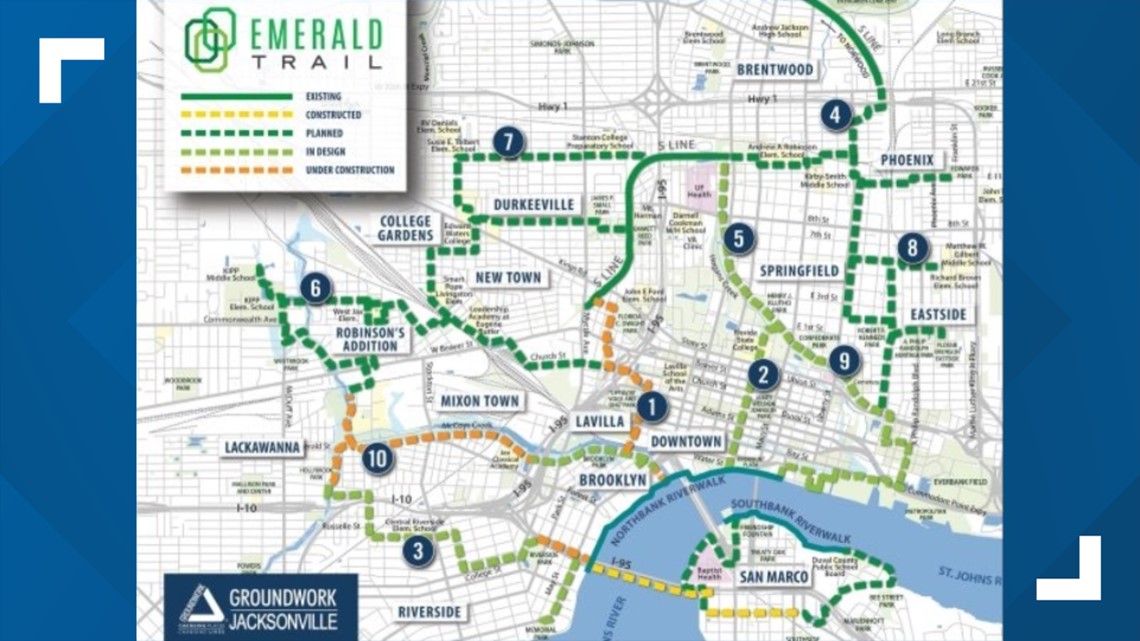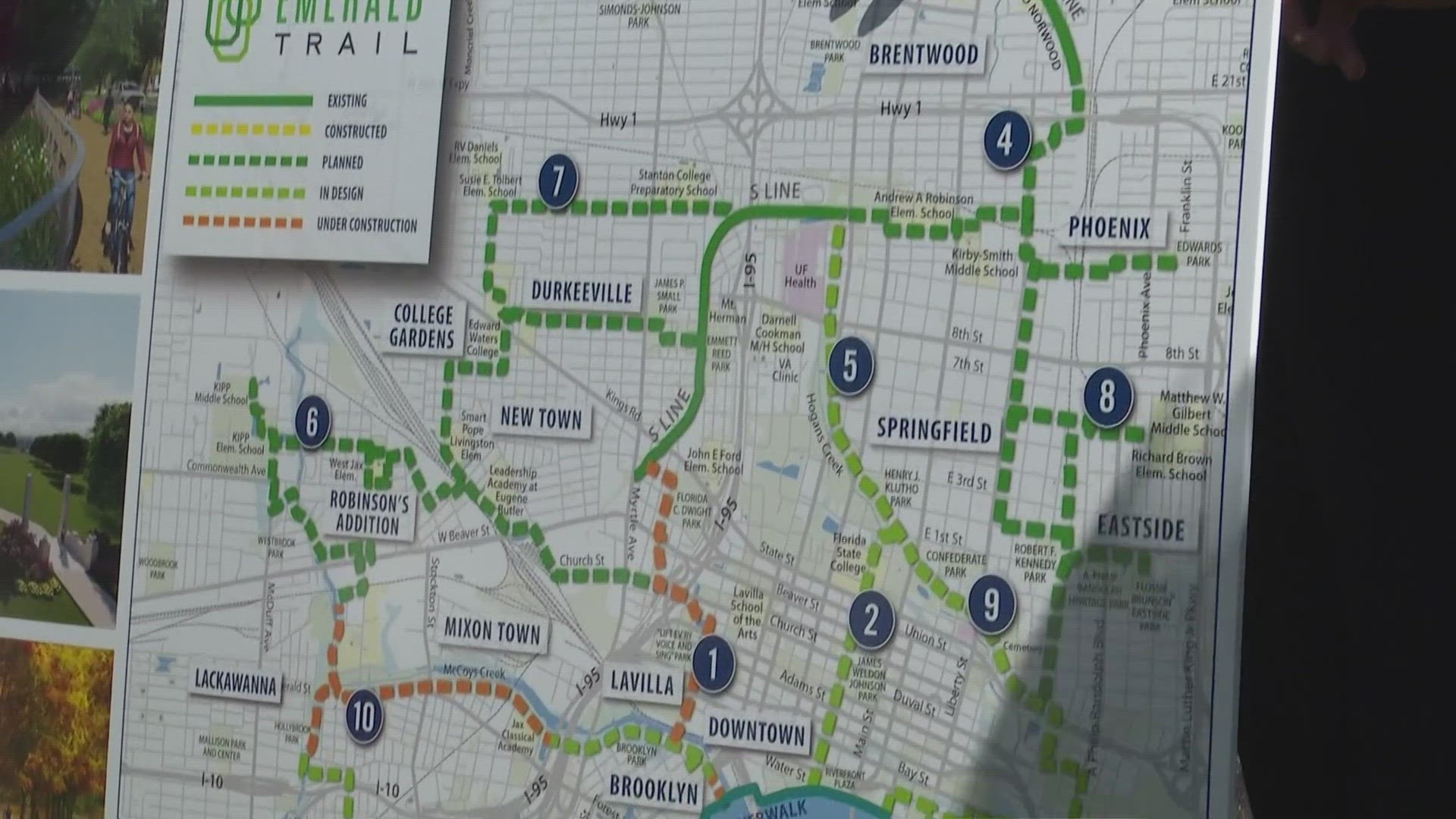JACKSONVILLE, Fla. — Green was one of the first few words said during a press conference Tuesday where many Jacksonville public officials talked about the progression of the Emerald Trail in Downtown Jacksonville.
"Green, green needs to be everybody's new favorite color," said Kay Ehas, CEO of 'Groundwork Jacksonville,' the city of Jacksonville's nonprofit partner.
Saying the word may have to do with the color of the gemstone the project is half named after, but it's more than likely that the word was said because the city of Jacksonville was recently awarded a lot of green in the form of a $147 million federal grant. The grant from the U.S. Department of Transportation is the largest one-time federal grant the city has ever received, according to the Jacksonville Transportation Authority (JTA).
The Emerald Trail is an ongoing project that was adopted by city council five years ago, as a 30-mile trail will eventually connect 14 urban neighborhoods to downtown. Forty percent of the trail is complete, under construction or currently in the design process by Groundwork Jacksonville, the city and JTA. The trail's 'LaVilla Link' portion is set to open this year, Ehas stated in the press conference.
"Hopefully May 6, we're targeting May 6," Ehas said in regards to when the 'LaVilla Link' will open. "We're doing everything we can."
Millions of dollars in grant money will be used to fund the design and construction of the trail's remaining five segments below, according to Ehas:
- Segment Three - Southwest connector connecting Riverside to McCoys Creek
- Segment Four - 'S-line' connector stretching 1.3 miles
- Segment Six - Westside connector connecting North Riverside, Woodstock and Robinson's Addition
- Segment Seven - Northwest connector connecting Durkeeville, College Gardens and New Town
- Segment Eight - Eastside connector connecting Phoenix and Springfield


"Since the passing of the local option gas tax, which originally funded the Emerald Trail, now we have additional funding that would allow us to accelerate the building of these remaining five segments," JTA CEO Nathaniel Ford said. "Local option gas tax dollars will be used to provide the 20 percent match in the amount of 36.65 million [dollars]," Ehas added.
A list of projects that JTA hopes to complete using funds from the local option gas tax can be found here.
Ehas said grant money will also fund neighborhood plans and capacity building for seven neighborhoods along the trail.
"We're not only building a trail, we are building a community," said Ehas. "Our goal with these plans is that residents will be the architect's of their neighborhood's revitalization, providing a guide for public and private investments in housing and economic development to prevent displacement and increase prosperity for long-term residents."
Jacksonville was awarded the sixth-highest amount of money out of the $3.1 billion in funding the federal government offered under the grant program; over 686 applications were submitted from across the country, according to Ford. Mayor Donna Deegan, JTA representatives and Groundwork Jacksonville took a trip to Washington D.C. last year to lobby for the grant money.
"The Emerald Trail's impact on Jacksonville will resonate for generations to come," Ford said. "Think about the connections to schools, hospitals, universities and jobs that this project will build."
Hogan Street is expected to be under construction mid-2024, Hogans Creek is expected to be under construction by 2026 and McCoys Creek is at "various stages of construction."
Tony Cho is a real estate developer from Miami and represents the Phoenix Arts & Innovation District.
He plans to create a space on Liberty Street in Phoenix that will be dedicated to small businesses and urban farming as part of the Emerald Trail.
"What I felt about Jacksonville is people were so receptive to new ideas and inspiration and innovation and the work I've been doing in South Florida for 20 years around arts, culture and innovation in underserved communities that there became so much support."

